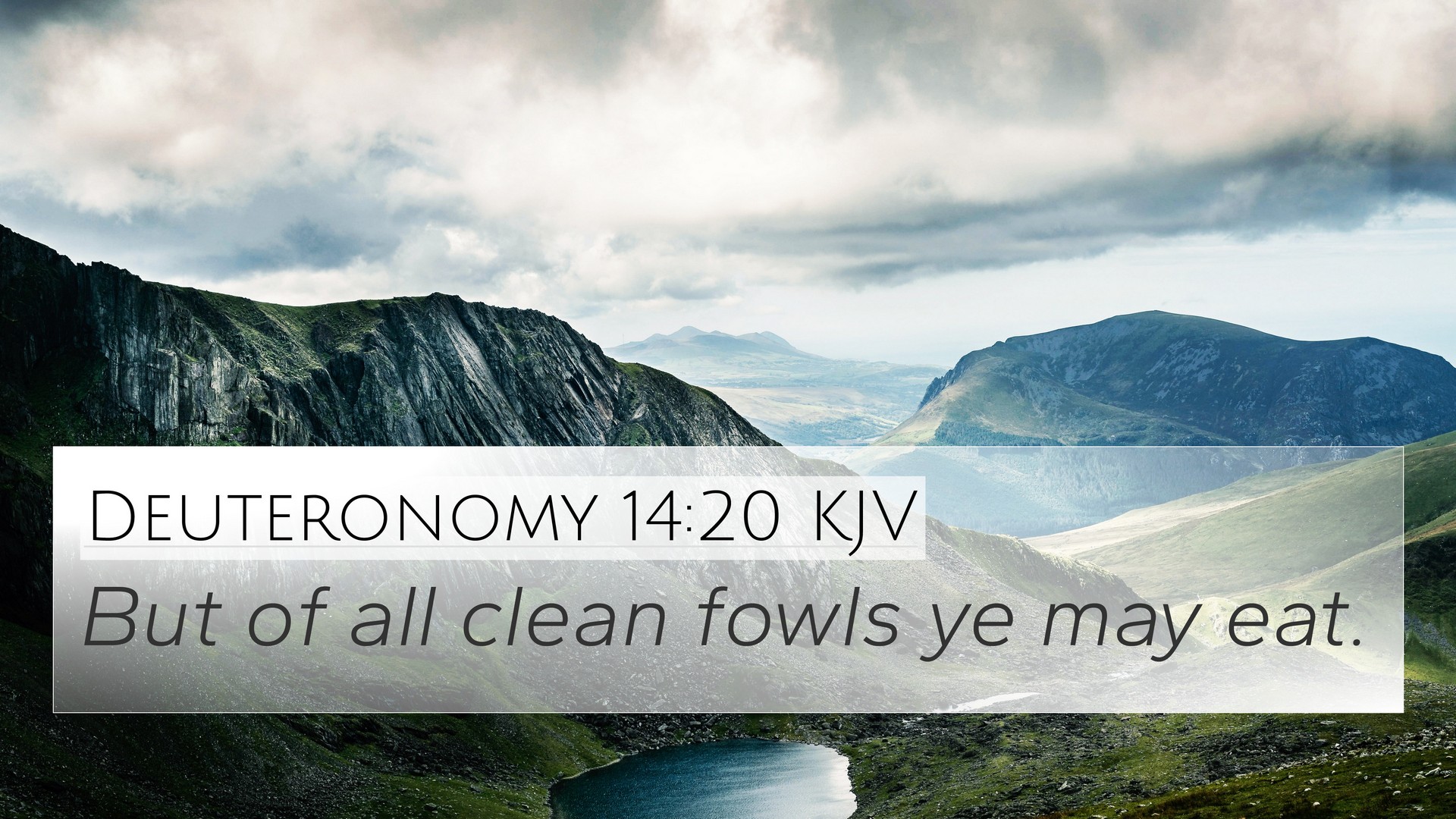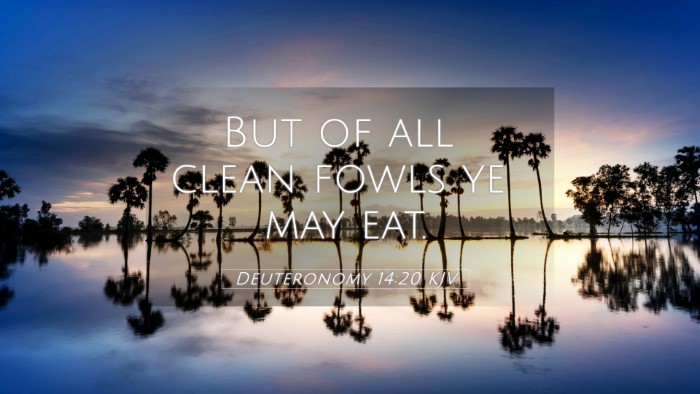Understanding Deuteronomy 14:20
Deuteronomy 14:20 states: "But of all clean birds ye shall eat." This verse is part of a larger discussion regarding dietary laws in the Old Testament, specifically focusing on distinguishing between clean and unclean animals. Below is a summary of insights derived from various public domain commentaries.
Interpretation and Meaning
In Deuteronomy 14:20, the command is clear regarding the consumption of clean birds. The context is essential, as it originates from God's instructions to the Israelites pertaining to their conduct and covenant living.
-
Matthew Henry: Henry emphasizes the importance of these dietary laws in setting Israel apart from the surrounding nations. The distinction between clean and unclean creatures serves as a reminder of God’s holiness and the need for His people to maintain purity in all aspects of life.
-
Albert Barnes: Barnes notes that the term "clean" refers to those animals which God has deemed acceptable for human consumption. He explains that these regulations not only served health purposes but were profoundly spiritual, showing a commitment to divine guidelines and fostering a relationship with God through obedience.
-
Adam Clarke: Clarke provides historical context, pointing out that the Israelites were surrounded by cultures with different practices. He illustrates that these dietary instructions were not arbitrary but were meant to keep Israel distinct and focused on their covenant relationship with God.
Thematic Connections and Cross-References
The thematic exploration of Deuteronomy 14:20 can be enhanced through Bible cross-references. Below are verses that relate to the themes of dietary laws, holiness, and the distinctions between clean and unclean:
- Leviticus 11:13-19: Details the types of birds that are considered unclean.
- Deuteronomy 12:23-25: Discusses the importance of not consuming blood, adding weight to God's call for holiness.
- 1 Peter 1:16: "Because it is written, Be ye holy; for I am holy." This New Testament echo reinforces the ongoing call to holiness for believers.
- Matthew 5:17-19: Jesus affirms the law, emphasizing that it remains relevant to His teachings.
- Acts 10:12-15: Peter's vision challenges the old dietary restrictions, linking the clean and unclean themes across the Testaments.
- Romans 14:14: Paul discusses the implications of clean and unclean foods within the context of New Testament freedom.
- Hebrews 10:10: This verse highlights the ultimate sacrifice of Christ and its effect on the ceremonial laws.
Cross-Referencing Biblical Texts
When engaging in scriptural cross-referencing, the connections between verses are made clear, showing God's consistent message throughout scripture. This also aids in a deeper understanding of thematic Bible verse connections throughout both the Old and New Testaments.
Tools for Bible Cross-Referencing
Using a Bible concordance or a Bible cross-reference guide can significantly enhance your study. Here are some resources that aid in effectively linking Bible scriptures:
- Bible reference resources: Various reference materials that help identify thematic and topical connections.
- Bible chain references: A method to follow a theme through interconnected verses.
- Cross-reference Bible study methods: Techniques for deeper engagement with the texts.
- Comprehensive Bible cross-reference materials: Resources that compile cross-references for extensive studies.
Conclusion
Deuteronomy 14:20 serves as a significant point of reflection for understanding God's dietary laws for His people. Through cross-referencing and comparative Bible verse analysis, one can uncover the rich tapestry of God's holiness and the call for His people to live according to His standards. The connection of this verse with others enhances its meaning and applicable lessons in the life of a believer.


